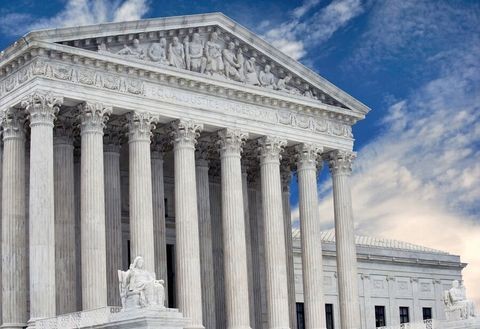Department of Energy Solicits Comments On Energy Efficiency Test Procedures for Battery Chargers
Client Alert | 2 min read | 05.11.20
The U.S. Department of Energy (DOE) issued a Request for Information (RFI) last week soliciting comments no later than June 3, 2020, on possible revisions to the energy efficiency regulations for battery chargers. Understanding how both the existing regulatory regime and any proposed changes will impact a company’s battery chargers and related products is an essential but often overlooked component of company compliance programs, and compliance failures can result in substantial civil penalties.
The Energy Policy and Conservation Act
As our Energy Efficiency and Appliance Standards Team has previously discussed here and here, DOE administers the Energy Policy and Conservation Act (EPCA) by setting mandatory appliance efficiency or conservation standards for over 60 covered products, including refrigerators, vacuums, many smart appliances, and of course battery chargers and external power supplies.
Each efficiency standard has two components: (1) a device-specific conservation standard and (2) an associated test procedure which the manufacturer must apply to demonstrate compliance with that conservation standard. Failure to comply with these standards is costly. DOE can seek penalties of up to $460 for each non-compliant unit sold or made available for sale, with up to a five-year look back.
EPCA compliance is generally the responsibility of either the manufacturer of a covered product or the importer of the product if the product was manufactured outside of the U.S. Retailers serving as importers of record would therefore assume responsibility for compliance and should pay close attention to these developments.
The Request for Information
DOE’s RFI seeks feedback on the regulations concerning test procedures for battery chargers covered by EPCA, meaning any charger that is capable of charging batteries for a consumer product, including chargers that may be embedded as components of other consumer products (i.e., where a device with some other primary use includes battery charging functionality).
In particular, the Department of Energy is interested in comments on:
- How to alter test procedures for battery chargers so that it lessens the burden on regulated industries;
- Whether there are viable test procedures for wireless chargers, most of which are not currently subject to energy efficiency standards;
- Possible testing procedures for testing battery chargers that are not shipped with the product they are intended to charge; and
- New or third-party developed test procedures that might more accurately capture a battery charger’s energy efficiency.
In 2018, DOE sought information on the emerging market for smart appliances with the purpose of ensuring that the agency, in pursuing its regulatory mission, did not inadvertently impede market development. As part of this RFI, DOE is also seeking feedback on whether and to what extent the battery charger test procedures affect the growth of the smart appliance market.
Comments responding to this RFI must be submitted no later than June 3, 2020.
Contacts
Insights
Client Alert | 3 min read | 05.15.24
On May 9, 2024, the U.S. Supreme Court issued a ruling in Warner Chappell Music Inc. et al. v. Sherman Nealy et al., Case No. 22-1078, resolving a circuit split in federal courts as to whether it is possible to recover copyright damages beyond the three-year filing statute of limitations. The court held in a 6-3 ruling that there is no time limit on monetary recovery, while leaving the three-year filing deadline intact.
Client Alert | 3 min read | 05.14.24
Client Alert | 4 min read | 05.13.24
Harmonizing AI with EEO Requirements: OFCCP’s Blueprint for Federal Contractors
Client Alert | 7 min read | 05.13.24
SEC Enforcement Actions Signal Enhanced Scrutiny Around “AI Washing”






